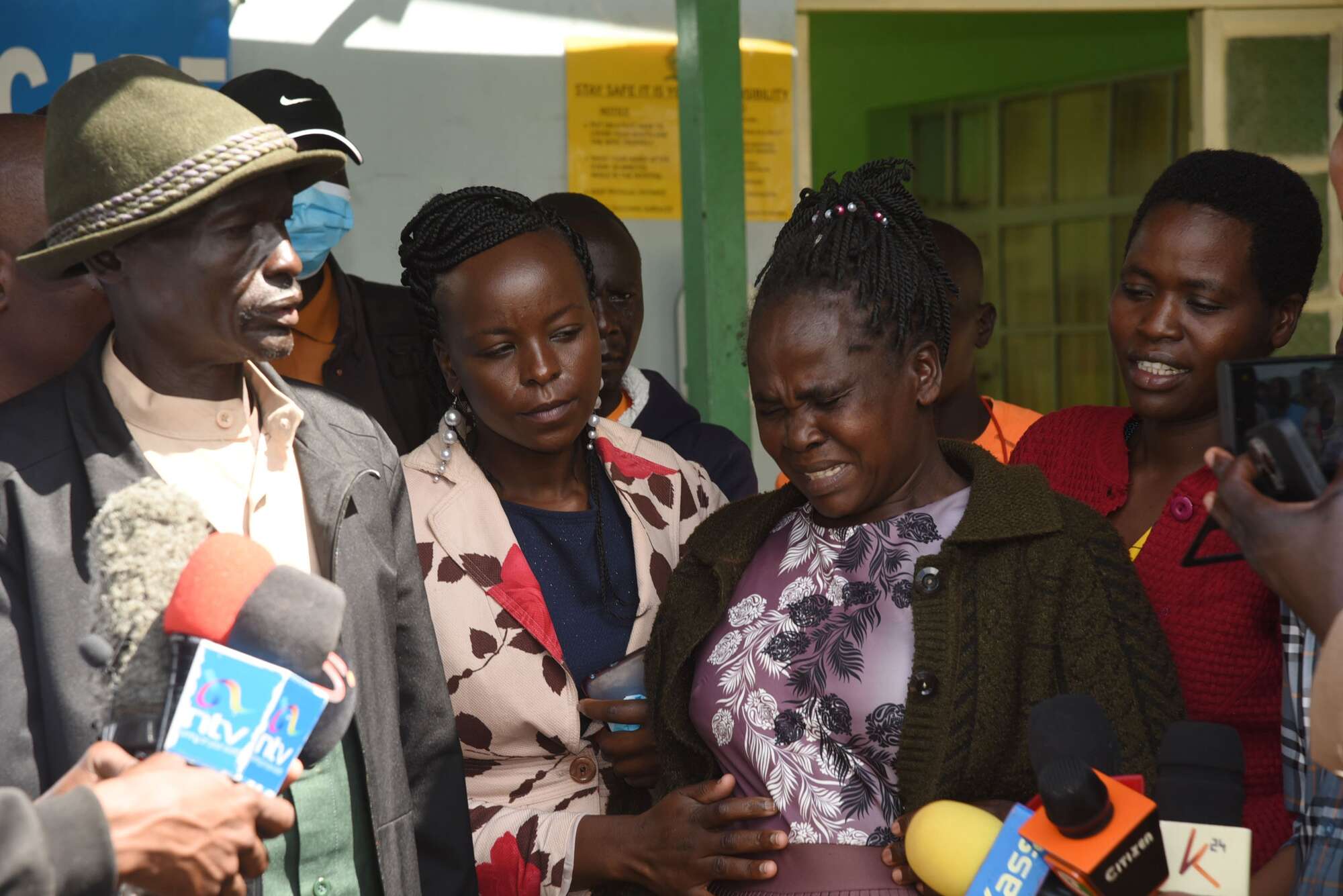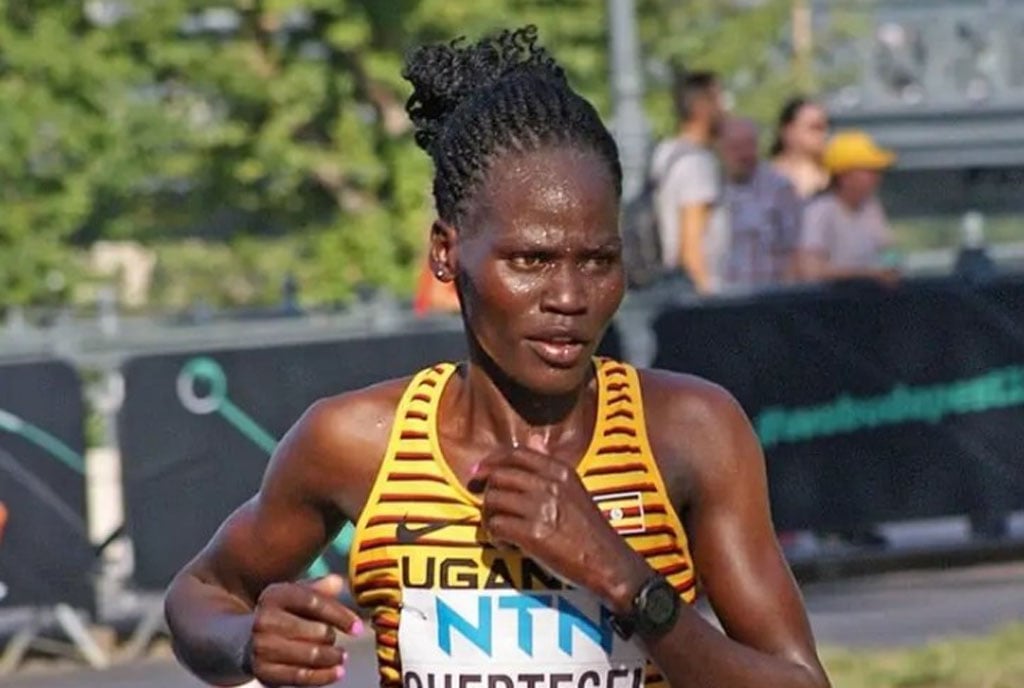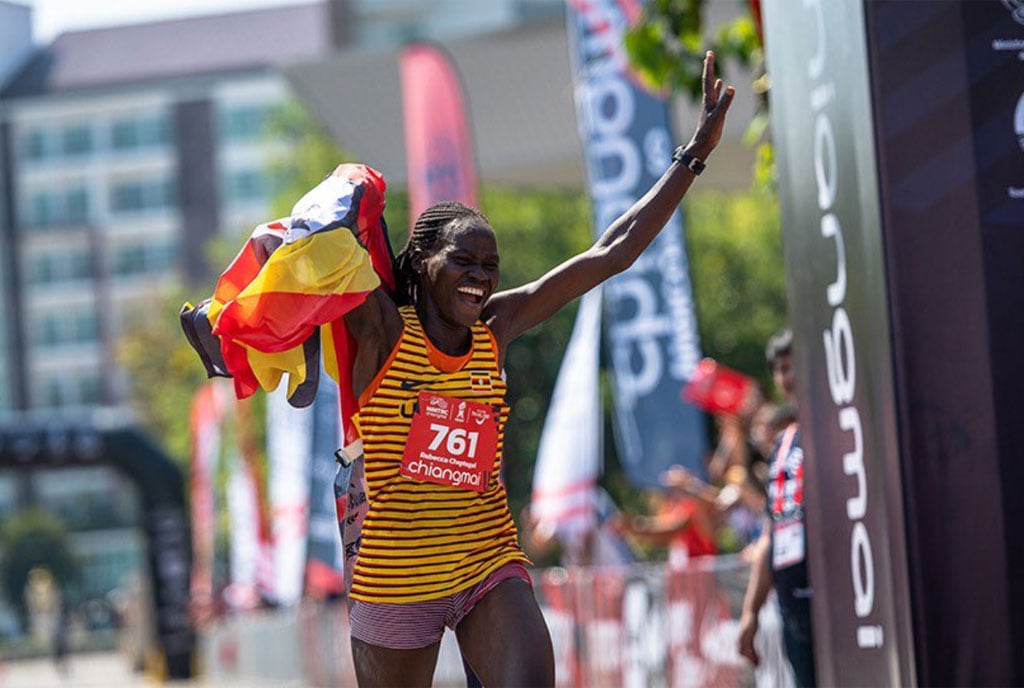
Mr Charles Onyango-Obbo
Ugandan marathoner Rebecca Cheptegei, who represented the country at the Paris Olympics last month, will be buried on September 14. Cheptegei died the previous week days after her Kenyan boyfriend splashed her with petrol and set her ablaze on September 1. Her boyfriend Dickson Ndiema, stormed her house in Kenya’s western Trans Nzoia with a jerry can of petrol and set her on fire after a disagreement over land – her land. Cheptegei, who suffered burns on nearly 80 percent of her body, died at the Eldoret Referral Hospital.
Cheptegei is the third prominent sportswoman to be killed in Kenya since October 2021. Her murder returned the international spotlight to domestic violence against female athletes who live and train in Kenya’s Rift Valley. This region has produced a record number of world long-distance running champions.
In October 2021, the athletics community was shaken when Agnes Tirop, a rising star and two-time world 10-kilometre bronze medalist, was found dead inside her home in the running town of Iten with numerous stab wounds. Tirop had broken the women’s 10-kilometre record in Germany a month before she was killed by her husband. Six months later, marathoner Damaris Mutua was strangled by her Ethiopian boyfriend Eskinder Hailemaryam Folie, also in Iten.
Like with the previous killings, Cheptegei’s murder sparked outrage and calls for more action against domestic violence. A CNN report said; “Iten [in Kenya’s Great Rift Valley] and its surrounding regions are revered training grounds for long-distance runners due to their crisp air and high altitude.
Success in races overseas can mean brand sponsorships, stipends, performance bonuses and sometimes paid travel expenses for races — resources that allow runners to participate in international competitions…“This makes domestic violence especially prevalent in running communities in the region, said Joan Chelimo, a long-distance runner who also trains in the area. “A mix of (potential) wealth, fame and a patriarchal culture - where a man is expected to be the breadwinner - leaves young, ambitious women either prey to unscrupulous men trying to get their hands on their future earnings or vulnerable to intimate partners who wish to control them”, she said.
ALSO READ: Shock as Ugandan athlete found dead in Kenya
Chelimo’s view gets to the heart of the problem. Educating and “sensitising” men about gender-based violence in such situations, will not go far enough. The murder of star female athletes is part of an increasing pattern of violence by men against women with money. We see it everywhere; in the high number of successful female musicians and influencer marketers in countries like South Africa, Nigeria, Ghana, Kenya, and even Muslim nations like Tunisia and Egypt killed and attacked – sometimes by state agents and followers of extremist sheikhs. Many young successful career and businesswomen end up dead in their bathtubs or with their bodies in large kaveeras dumped in bushes and forests by boyfriends.
Evil, jealous, and insecure men have always killed women, but this is a specific phase marked by a fight over the women’s wealth. It is made worse because the women are toppling men from a platform they have dominated for centuries. It is a big order issue. Incumbent powers are most dangerous when they are being overthrown by new rising ones. A king or president is most dangerous when a claimant to their throne is closing in for the kill.
And the Queen is most deadly when the king is about to give her place to the court lady who he has become besotted with. There is also another inconvenient fact. Because many African men still can’t deal with women who are richer than them, most of the good ones will not date them in a way that ends in marriage or a deep relationship. Many of those who dare are often the most feral, throat-slitters. Sitting at home watching on TV his wife or girlfriend winning gold at the Athletics World Championships, being handed flowers, and running around the field chased by photographers with the national flag draped around her neck, will dent the pride of many traditional men.
Matters will not be helped by mean neighbours giving them side looks, and nattering that they are just a leech waiting in the house to sponge off their champion partners. It would be a lie to say all will be well soon. As the services, digital, and attention economy grows, women will make more and more money, and equal, or most likely, surpass men. Men will kill many more of them, but after a decade or more, things will get better with the emergence of enough “new men”.
But something can be done to ease the problem. In ancient times, the rulers sent the men off to die in war. Today it’s possible to build economies which put more men to work, and money in their pockets. Money and the prestige of decent work, are the best panacea.
Mr Onyango-Obbo is a journalist, writer and curator of the “Wall of Great Africans”.
Twitter@cobbo3




